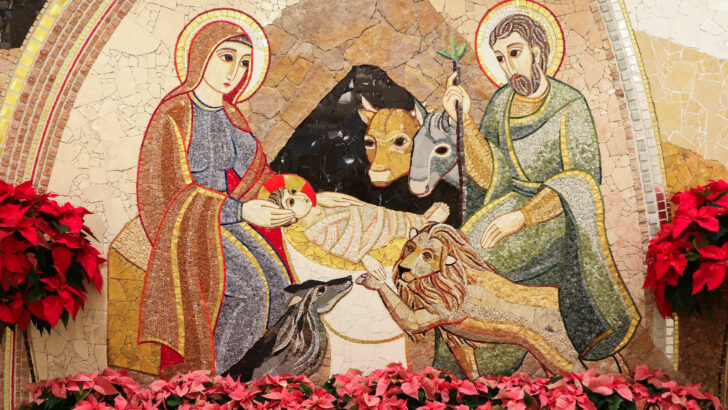The Vatican’s Dicastery for Communications are digesting a robust rebuke by the Pope’s key point-man on clerical sexual abuse, the steely Irish American Cardinal Seán Patrick O’Malley OFM Cap.
Last week, the head of the Vatican’s communications department Paolo Ruffini strongly defended the continued use by his office of the art work of Jesuit artist Marko Rupnik who has been accused of appalling crimes of abuse against adult females. His case is being investigated by the Vatican’s DDF. The use of the art is highly contentious given victims say it’s a continuation of the abuse and a reminder of it.
In what seasoned PR professionals could only describe as a car crash intervention, Mr Ruffini told journalists that discontinuing the use of Fr Rupnik’s art of the Holy See’s website “is not a Christian response”.
“As Christian[s], we are asked not to judge,” he said, asking the journalists: “Do you think that if I put away a photo of an art [away] from…our website, I will be more close to the victims? Do you think so?” When given an answer in the affirmative, Mr Ruffini responded: “I think you’re wrong.”
Well, it turns our Cardinal O’Malley thinks it is the hapless Mr Ruffini who is wrong. [Ruffini was also responsible for the disasterous press conferences around the Synod last year where right-wing Catholic media were allowed run amok]. In a note to all Vatican departments a few days later, the president of the Pontifical Commission for the Protection of Minors asked for the art not to be used.
“We must avoid sending a message that the Holy See is oblivious to the psychological distress that so many are suffering,” he wrote. “Pastoral prudence would prevent displaying artwork in a way that could imply either exoneration or a subtle defence” of alleged abuse perpetrators “or indicate indifference to the pain and suffering of so many victims of abuse,” he wrote.
It is not the first time that the 80-year-old Cardinal O’Malley has had to remind the Vatican about pastoral prudence on the issue of abuse.
In January 2018, Pope Francis visited Chile and celebrated Mass with Bishop Juan Barros, who had been credibly accused of covering up abuse. The Pope denounced the critics of Bishop Barros, accusing them of slander.
“The day someone brings me proof against Bishop Barros, then I will talk. But there is not one single piece of evidence. It is all slander. Is that clear?” he said.
The Pope’s remarks were sharply criticised by Cardinal O’Malley. “Words that convey the message ‘if you cannot prove your claims then you will not be believed’ ,abandon those who have suffered reprehensible criminal violations of their human dignity and relegate survivors to discredited exile,” the cardinal said. He told the Pope his words had caused, “great pain”.
Almost five years later – and five years after he was due to retire – the cardinal must be weary correcting the Vatican and wondering when those hand-picked by the Pope to handle his communications will ‘get it’.
Knowing when to let go
If there were to be a papal conclave tomorrow, Cardinal O’Malley would be too old to vote. And yet, his latest intervention shows the value of experience and the wisdom of age.
But this shouldn’t blind us to the fact that true wisdom comes in knowing when it is time to let go. Benedict XVI showed remarkable humility when, in 2013, he acknowledged before God and the entire Church that he no longer had the capacity to remain on the Throne of St Peter. He continued to gently serve the Church through his prayer and witness.
There might be a lesson here that US president Joe Biden might heed in Benedict’s humility. It is not so much that age is a factor, but capacity to lead – particularly at a time when the world is engulfed in crises and may be on the brink of all-out war in the Middle East.
Knowing when it is time to go is often the supreme act of leadership.


 Mosaic by Marko Rupnik SJ in the chapel of the National Shrine of St John Paul II, Washington DC.
Mosaic by Marko Rupnik SJ in the chapel of the National Shrine of St John Paul II, Washington DC. 